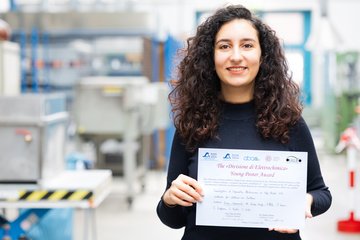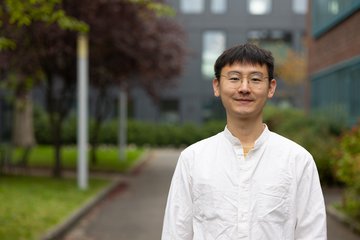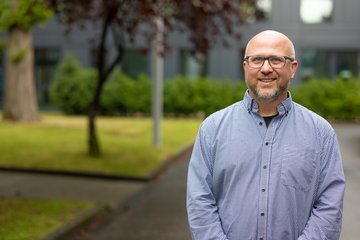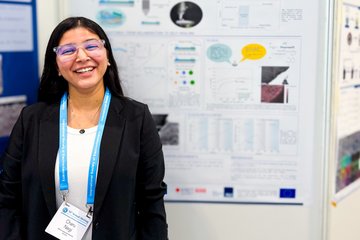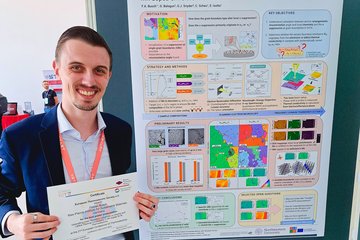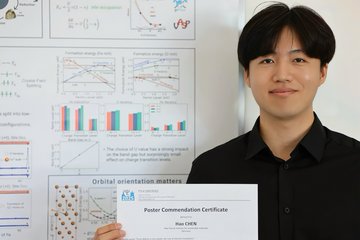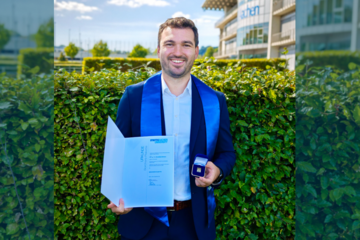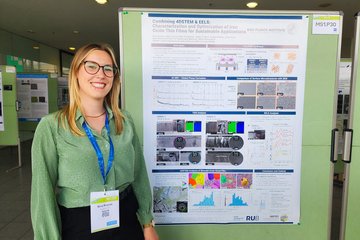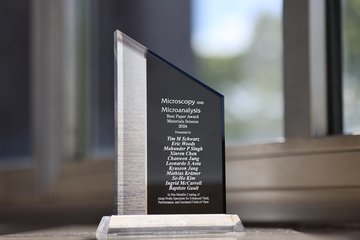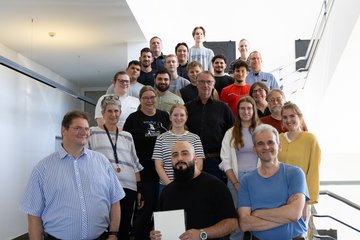All genres
1.
Journal Article
A novel microwall sliding test uncovering the origin of grain refined tribolayers. Acta Materialia 246, 118670 (2023)
2.
Journal Article
Influence of crystal orientation on twinning in austenitic stainless-steel during single micro-asperity tribology and nanoindentation. WEAR 504-505, 204403 (2022)
3.
Journal Article
Deformation and phase transformation in polycrystalline cementite (Fe3C) during single- and multi-pass sliding wear. Acta Materialia 227, 117694 (2022)
4.
Journal Article
Massive interstitial solid solution alloys achieve near-theoretical strength. Nature Communications 13, 1102 (2022)
5.
Journal Article
Scratch hardness at a small scale: Experimental methods and correlation to nanoindentation hardness. Tribology International 163, 107168 (2021)
6.
Journal Article
In situ nanoindentation during electrochemical hydrogen charging: a comparison between front-side and a novel back-side charging approach. Journal of Materials Science 56 (14), pp. 8732 - 8744 (2021)
7.
Journal Article
On the commensuration of plastic plowing at the microscale. Tribology International 151, 106477 (2020)
8.
Journal Article
Investigation of single asperity wear at the microscale in an austenitic steel. WEAR 452–453, 203289 (2020)
9.
Journal Article
Experimental conditions affecting the measured fracture toughness at the microscale: Notch geometry and crack extension measurement. Materials and Design 191, 108582 (2020)
10.
Journal Article
Insight into indentation-induced plastic flow in austenitic stainless steel. Journal of Materials Science 55, pp. 9095 - 9108 (2020)
11.
Journal Article
A Modified Electrochemical Nanoindentation Setup for Probing Hydrogen-Material Interaction Demonstrated on a Nickel-Based Alloy. JOM-Journal of the Minerals Metals & Materials Society 72 (5), pp. 2020 - 2029 (2020)
12.
Journal Article
Unraveling indentation-induced slip steps in austenitic stainless steel. Materials and Design 183, 108169 (2019)
13.
Journal Article
Towards quantifying the shear delamination of thin films. Materialia 8, 100421 (2019)
14.
Journal Article
In-situ study on fracture behaviour of white etching layers formed on rails. Acta Materialia 180, pp. 60 - 72 (2019)
15.
Journal Article
Micro fracture investigations of white etching layers. Materials and Design 180, 107892 (2019)
16.
Journal Article
Plastic deformation of tungsten due to deuterium plasma exposure: insights from micro-compression tests. Scripta Materialia 162, pp. 132 - 135 (2019)
17.
Journal Article
A framework for material calibration and deformation predictions applied to additive manufacturing of metals. International Journal of Fracture 218, pp. 85 - 95 (2019)
18.
Journal Article
The third Sandia fracture challenge: predictions of ductile fracture in additively manufactured metal. International Journal of Fracture 218 (1-2), pp. 5 - 61 (2019)
19.
Journal Article
Tribolayer formation during macro- and microscale cyclic contact. Tribology International 129, pp. 436 - 441 (2019)
20.
Journal Article
Hydrogen embrittlement of tungsten induced by deuterium plasma: Insights from nanoindentation tests. Journal of Materials Research 33 (20), pp. 3530 - 3536 (2018)
